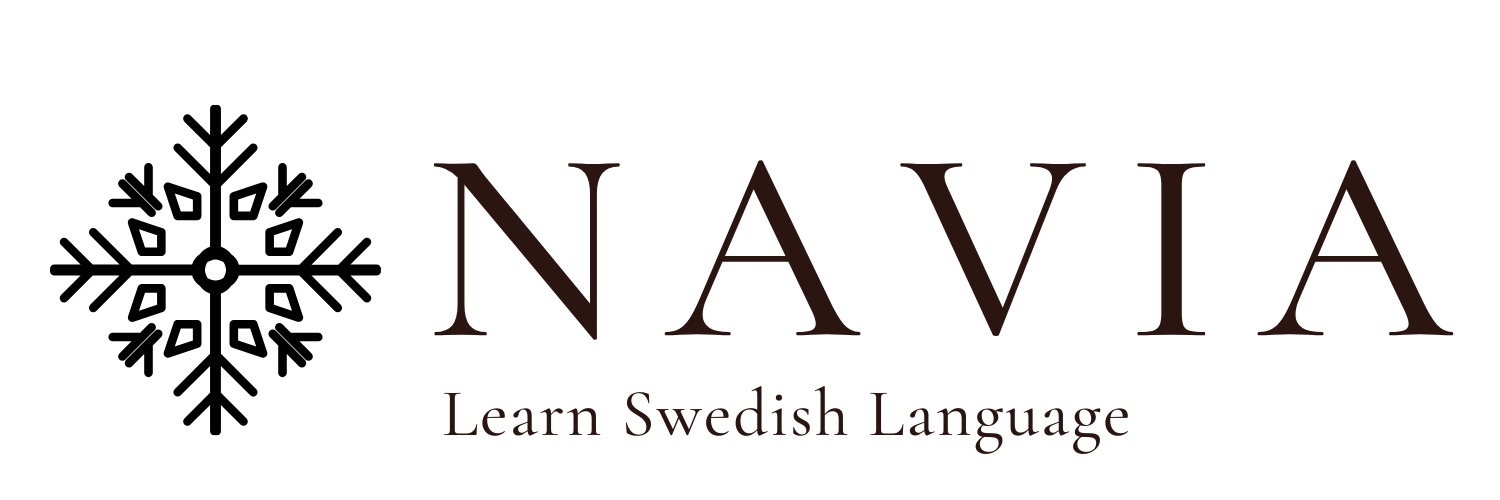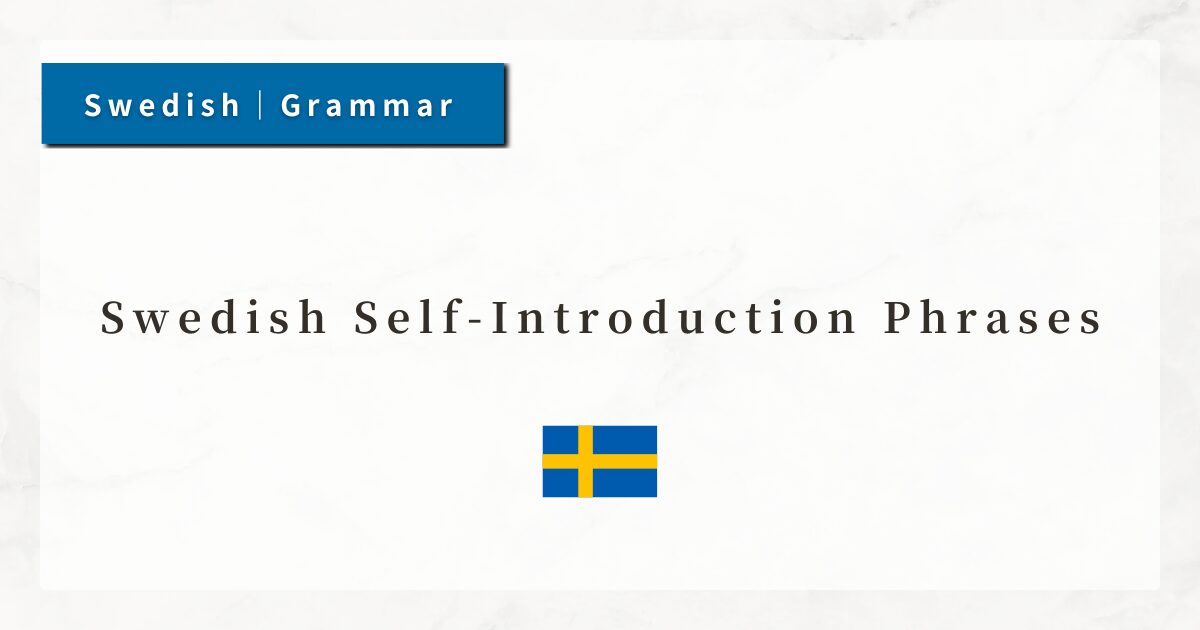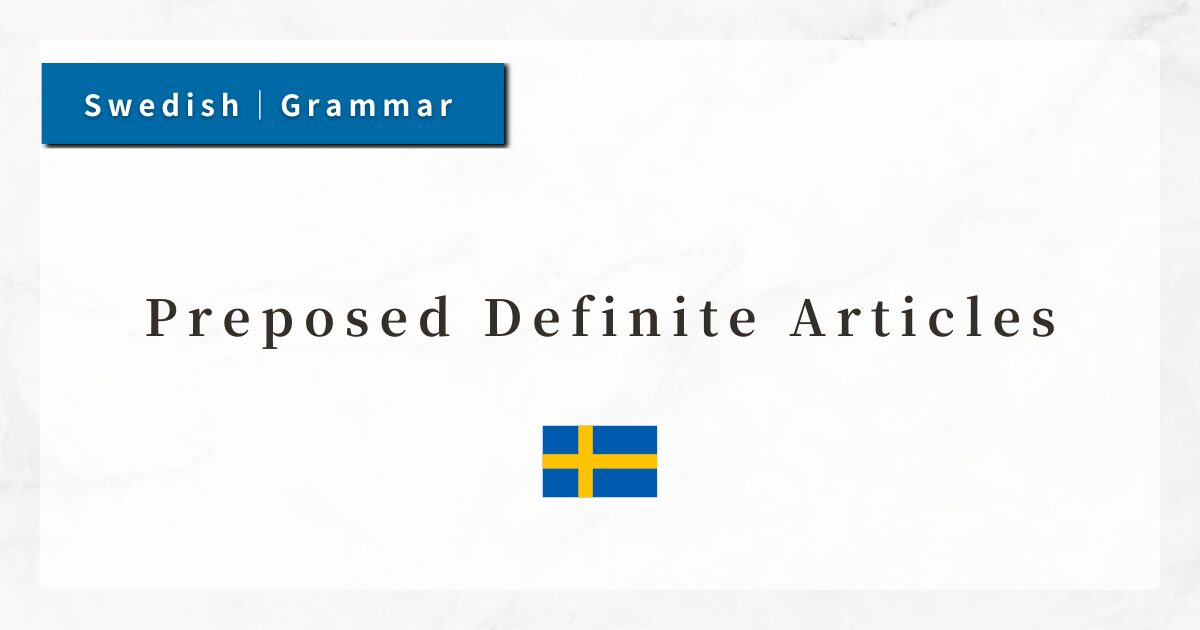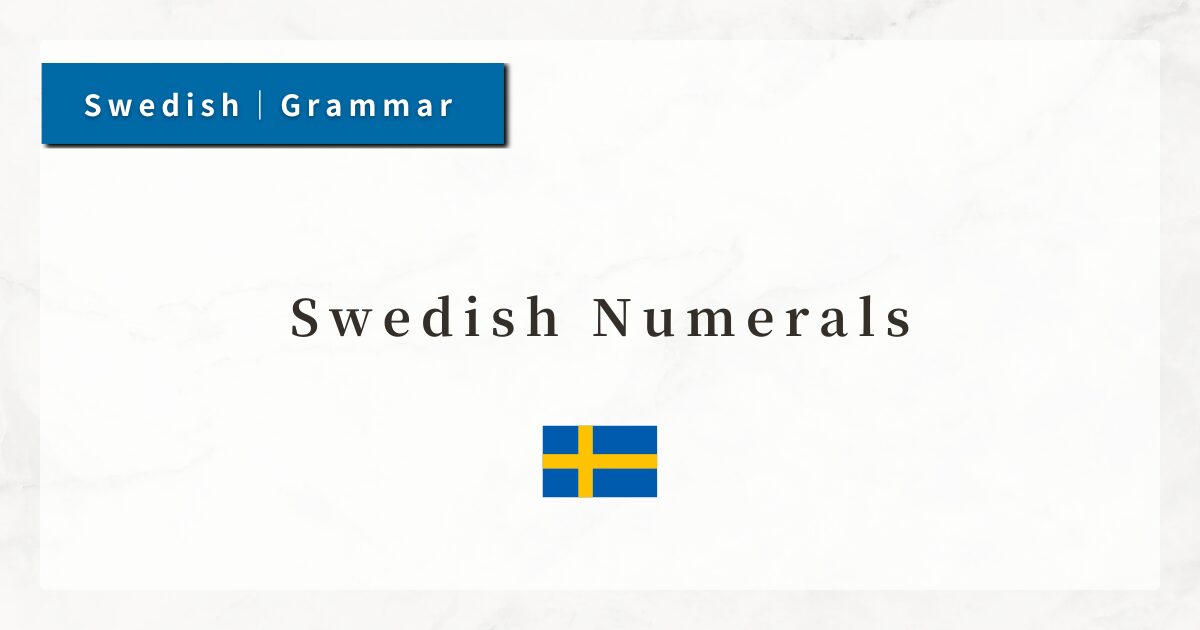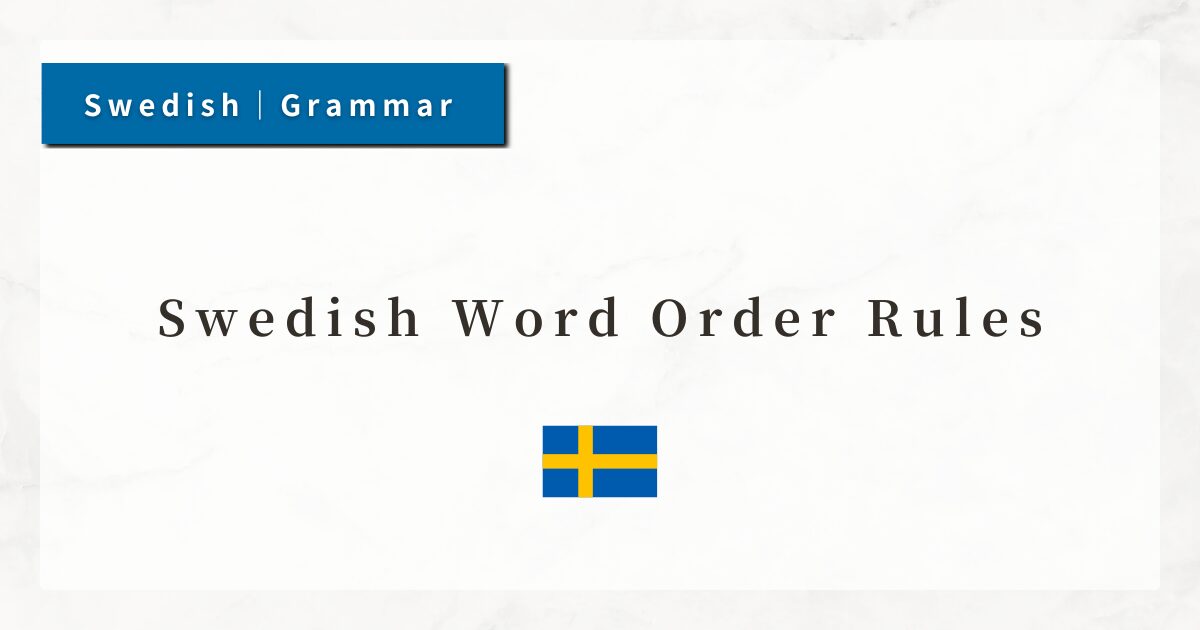#43 Swedish Indefinite Pronouns ingen / inget / inga|Basic Usage and Examples
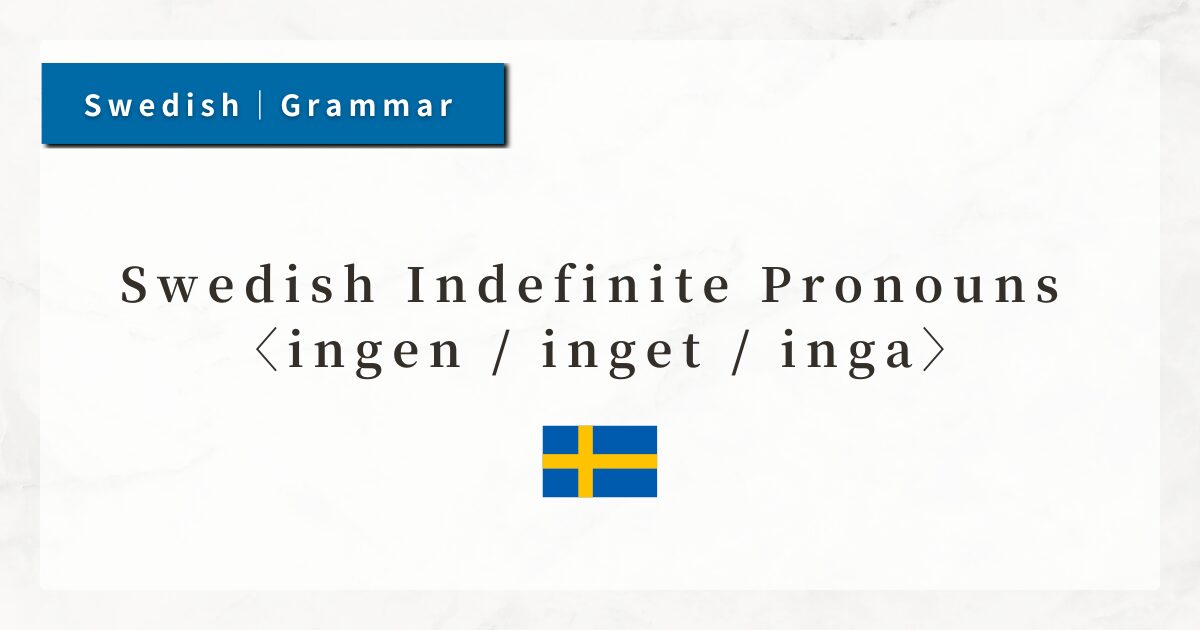
In Swedish, there are indefinite pronouns that express the idea of “no one,” “nothing,” or “none at all.”
These are ingen / inget / inga. They correspond to English words such as no one, nothing, or no, and their form changes depending on the gender and number of the noun they modify.
In this lesson, I will explain how to use ingen / inget / inga and highlight some important points to keep in mind.
1. Forms and Basic Rules
The indefinite pronouns ingen / inget / inga carry the meaning of “no one,” “nothing,” or “none.” They are used differently depending on the gender (common / neuter) and number (singular / plural) of the noun they modify.
| Form | Meaning | Noun Type | Example |
|---|---|---|---|
| ingen | no one / none | Common gender, singular | ingen bok (no book) |
| inget | nothing / none | Neuter gender, singular | inget hus (no house) |
| inga | no one / none | Plural nouns | inga böcker (no books) |
2. Modifying a Noun
The most basic use is to place ingen / inget / inga directly before a noun.
In this case, the meaning is “there is no …” or “there are no …”.
- Ingen man kom.
(No man came. / No one came.) - Inget problem är för svårt.
(No problem is too difficult.) - Inga barn lekte i parken.
(No children were playing in the park.)
Here, ingen / inget / inga must always precede the noun, just like no book in English.
3. Used on Their Own
These pronouns can also be used without a noun, in which case the meaning is inferred from the context.
ingen (no one): refers to people
- Ingen svarade.
(No one answered.) - Jag känner ingen.
(I know no one.)
inget (nothing): refers to things or situations
- Jag vet inget.
(I know nothing.) - Det är inget att oroa sig för.
(There is nothing to worry about.)
inga (none / no one / nothing, plural): refers to multiple people or things
- Vi såg inga.
(We saw no one / nothing.) - Det fanns inga kvar.
(There were none left.)
4. Relation to the Negative Word inte
Since ingen / inget / inga already carry a negative meaning, they are not combined with inte.
Otherwise, it results in a double negative and the sentence becomes incorrect.
- ✅ Ingen gillar kaffe.
(No one likes coffee.) - ❌ Ingen gillar kaffe inte.
(Incorrect, double negative.)
5. Comparison with the Affirmative Forms
The affirmative counterparts of ingen / inget / inga are the indefinite pronouns någon / något / några.
- Har du någon bok?
(Do you have a book?) - Nej, jag har ingen bok.
(No, I don’t have a book.)
Learning these pairs together makes it easier to use them naturally in questions and answers.
6. Summary
- ingen / inget / inga mean “no one,” “nothing,” or “none at all.”
- Their form changes depending on the gender (common / neuter) and number (singular / plural) of the noun.
- They can be used before a noun or on their own.
- Do not combine them with inte.
- Learn them alongside their affirmative forms (någon / något / några) for easier mastery.
